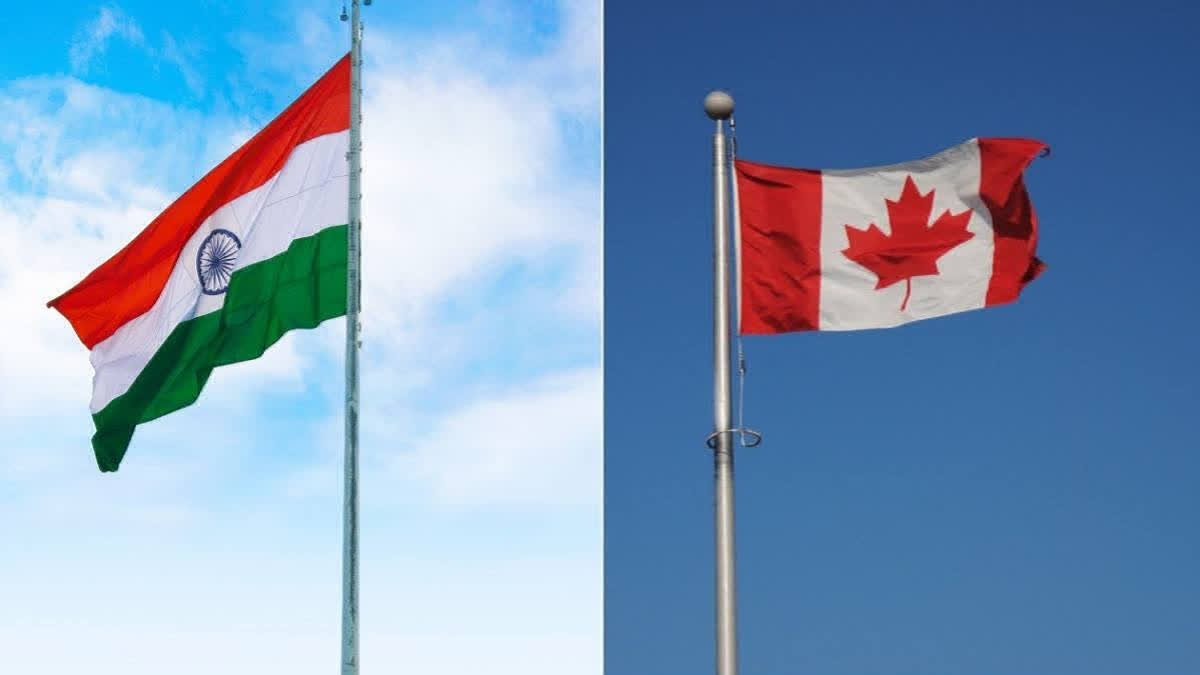New Delhi: The diplomatic standoff between India and Canada has reached new heights, with the Ministry of External Affairs (MEA) raising alarm over increasing threats against Indian diplomats in Ottawa. MEA spokesperson Randhir Jaiswal, addressing the media on Thursday, revealed that the threat level to Indian diplomats in Canada has escalated, citing instances of harassment, intimidation and surveillance over the past year.
The ongoing tension between the two countries is tied to allegations involving the killing of Hardeep Singh Nijjar, a Canadian citizen, with India being accused of involvement by Canadian officials.
As the situation worsens, the MEA has strongly condemned the surveillance of Indian diplomats, labelling it "totally unacceptable." Jaiswal emphasised that these actions are part of a broader trend of rising hostility and threats aimed at Indian diplomatic staff, saying, "Over the last year, the kind of things that we have seen attacking, threatening, intimidating and harassing Indian diplomats...yes, the threats have increased."
In the face of mounting security concerns, India requested enhanced protection for its diplomats, particularly in the context of consular camps. However, the Canadian government failed to provide adequate security, as highlighted by Jaiswal during the briefing.
“We had asked for security to be provided for our diplomats where the consular camp was to be held and those have not been provided by the Canadian side,” he said.
The backdrop of these developments includes a rise in Khalistani extremist activities in Canada, including violent protests and attacks on Hindu temples. This climate of growing unrest became especially evident during an incident in Brampton, near Toronto, when an Indian consular camp at the Hindu Sabha Temple was violently disrupted.
The attack drew sharp condemnation from both India and its citizens globally. Prime Minister Narendra Modi described the attack as a "deliberate" and "cowardly" act aimed at intimidating Indian diplomats, urging Canadian authorities to take swift action to ensure justice and uphold the rule of law.
The escalating diplomatic tensions between India and Canada have been further fueled by Canadian allegations, without substantial evidence, regarding India’s involvement in the assassination of Nijjar. These claims have created a sharp divide, as both nations continue to grapple with the diplomatic fallout.
External Affairs Minister S Jaishankar, currently in Australia, expressed deep concern over the attack on the Hindu temple, commenting on how the event highlighted the growing political space being granted to extremist forces in Canada.
"What happened on Wednesday at the Hindu temple in Canada was deeply concerning," he said during a joint press conference with Australian Foreign Minister Penny Wong.
Adding to the diplomatic strain, India summoned the Canadian High Commission’s representative earlier this month, lodging a formal protest over "absurd and baseless" comments made in Canada’s Standing Committee on Public Safety and National Security. The remarks, made by Deputy Minister David Morrison, referenced Union Home Minister Amit Shah in an unsubstantiated manner, further exacerbating the diplomatic discord.
The ongoing row between India and Canada continues to unfold with heightened tensions, calls for greater security for diplomats, and mounting concerns over the safety of Indian nationals in Canada. With both nations entrenched in their positions, the situation remains delicate, and it remains to be seen how diplomatic channels will navigate this increasingly complex issue.



